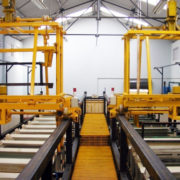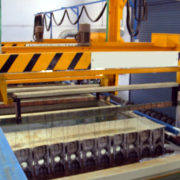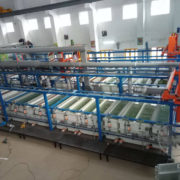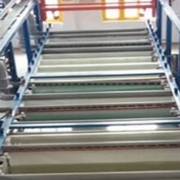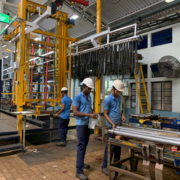Anodizing Automatic Plant
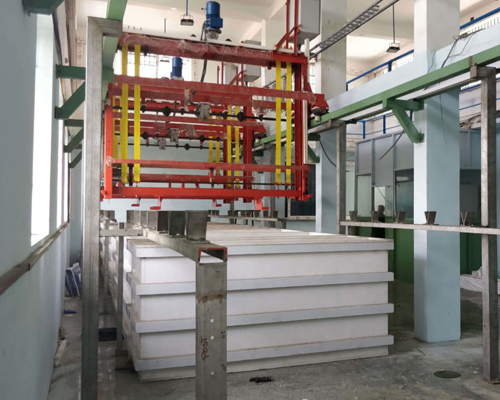
We are the main company in India in the field of Anodizing Automatic Plant. For any questions contact us for a free quote!
Anodizing is a method for changing the surface chemistry of metals and other substrates. One of the most durable surface treatments available, it prevents corrosion, improves aesthetics, resists scratches, and is extremely long-lasting. The thickness of the natural oxide layer on the surface of metal components is increased through the electrolytic passivation process of anodizing. Aluminium alloys are anodized to improve adhesion, lubrication, dyeing (colouring), and surface hardness, as well as corrosion resistance.
Why is Anodising Important?
Given the previously given facts, it is true to state that the anodizing process can be utilized to shield the metal’s surface from potential abrasion damage. Aluminium alloys can be anodized to create a protective layer of aluminium oxide that resists rust and other forms of wear and tear. An enduring, corrosion-resistant substance is aluminium oxide. Additionally, the electrochemical method enables the application of colours to the surface without the risk of peeling.
Key Advantages of Anodising Aluminium Alloys
- Corrosion resistance
- The natural metallic anodized finish
- No risk of adhesion failure of the anodic film
- No risk of surface finish fading
- Preservation of the original surface finish texture and design
- Optimal surface coverage
Benefits of Anodizing Automatic Plant
Durability
The majority of anodized items have extraordinarily long lifespans and provide significant financial benefits due to maintenance and operational cost savings. For complete bonding and unrivalled adhesion, anodizing is a reactive finish that is merged with the underlying aluminium.
Aesthetics
Anodizing offers a large and increasing number of gloss and colour alternatives and minimizes or eliminates colour variations. Unlike other finishes, anodizing allows the aluminium to maintain its metallic appearance.
Ease of Maintenance
Scars and wear from fabrication, handling, installation, normal surface dirt cleaning, and usage are essentially non-existent. Anodized surfaces may typically be cleaned with mild soap and water or rinsed to bring back their original appearance. For tougher deposits, you can use mild abrasive cleansers.

